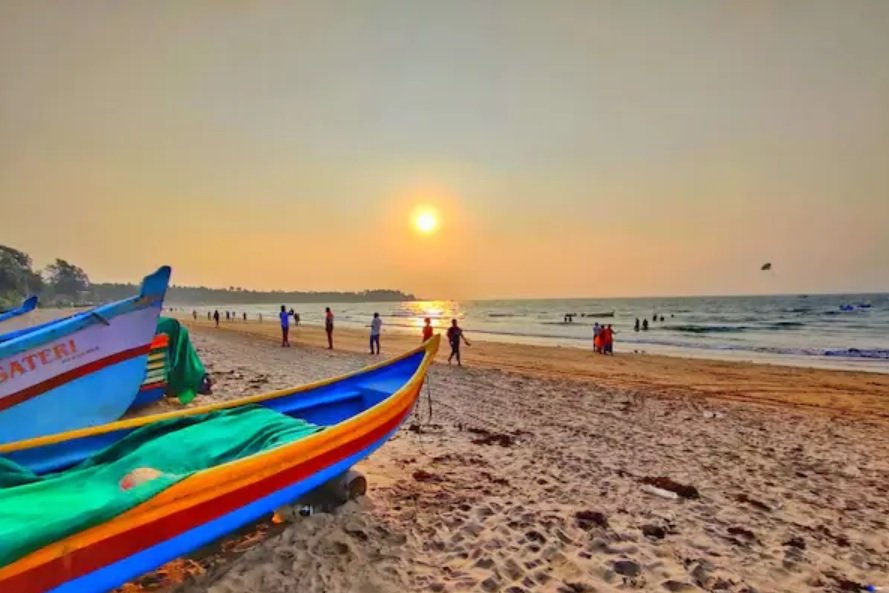Sustainable tourism in India is becoming more popular as people realize the need to protect the country’s beautiful nature and rich culture. India’s mountains, beaches, forests, and traditions attract visitors from around the world. But, they need to be cared for to last. Sustainable tourism is about more than just visiting places; it’s about travelling responsibly. This means reducing harm to the environment, respecting local traditions, and helping local communities.
The goal of sustainable tourism is to balance travel with the need to protect resources. It focuses on reducing waste, avoiding overcrowding, and creating eco-friendly options for travellers. By travelling responsibly, tourists can ensure that India’s incredible destinations stay clean, safe, and authentic for future generations, benefiting both local people and the environment.
The Need for Sustainable Tourism
India is on the brink of becoming a global leader in sustainable tourism. This surge is driven by the country’s diverse geography and increasing awareness about responsible travel practices. India’s travel and tourism sector is expected to grow exponentially in the coming years and is expected to contribute significantly to the country’s GDP. However, as tourism grows, it becomes crucial to balance economic development with ecological preservation.
Here are some key factors shaping the future of sustainable tourism in India:
Policy Support and Government Initiatives: The Indian government has been actively promoting sustainable tourism through initiatives such as the Dekho Apna Desh- People’s Choice Award, which encourages domestic tourism with a focus on less-explored destinations. The government is also making substantial investments of over INR 3000 crore to develop sustainable tourism projects in India. To encourage sustainable practices in the tourism industry, the tourism ministry has introduced green certifications for hotels, resorts, and travel operators. These certifications are awarded to businesses that adopt environmentally friendly initiatives like energy-efficient designs, proper waste management systems, and water conservation measures.
For example, eco-friendly hotels are increasingly using renewable energy sources like solar panels, eliminating single-use plastics, and offering organic food grown locally.
Growing Demand for Sustainable Travel: Tourists worldwide are becoming more conscious of their environmental and social impact. In India, this shift is especially noticeable among younger tourists, such as millennials and Gen Z, who actively seek destinations that prioritize sustainability and cultural authenticity. Experiential travel is becoming a preferred choice, where visitors immerse themselves in local cultures, try traditional activities, and interact with local communities. For example, travellers are choosing to stay in homestays instead of luxury resorts, participate in organic farming activities, or attend local festivals to experience the culture firsthand. This demand is pushing tour operators, hotels, and travel agencies to integrate sustainable practices into their offerings.
Community-Based Tourism: Community-based tourism is a cornerstone of sustainable travel in India. This model ensures that local communities are directly involved in tourism activities and benefit economically from them. In states like Sikkim and Uttarakhand, rural homestays allow visitors to experience the simplicity of village life, taste home-cooked food, and learn about traditional crafts. For example, the homestay program in Mawlynnong, Meghalaya, which is famous for being the cleanest village in Asia, offers an authentic experience of tribal culture while supporting the livelihoods of local residents. These initiatives also empower communities by providing job opportunities and preserving their cultural heritage.
Eco-Friendly Infrastructure Development: Sustainable tourism requires infrastructure that supports eco-friendly practices. India is witnessing the growth of solar-powered resorts, electric vehicles for transport, and waste-to-energy systems at popular destinations. For instance, in Ladakh, a region vulnerable to climate change, efforts are being made to promote solar energy, reduce plastic waste, and encourage sustainable trekking practices. Kerala’s Responsible Tourism Mission is another example where local handicrafts, organic food, and traditional village experiences are integrated into tourism while minimizing environmental damage.
Off-Beat Destinations Leading the Way in Sustainable Tourism
India’s lesser-explored destinations are emerging as new hubs for sustainable tourism. These off-beat places are away from the crowds of traditional tourist spots and are gaining popularity among eco-conscious travellers who seek authentic and nature-friendly experiences.
- Mawlynnong, Meghalaya: Mawlynnong has become a shining example of community-driven sustainable tourism. The village is famous for its cleanliness, with residents actively participating in waste management and maintaining eco-friendly practices.
- Spiti Valley, Himachal Pradesh: Tucked away in the Himalayan mountains, Spiti Valley is a haven for eco-tourists seeking solitude and natural beauty. The region’s fragile ecosystem is protected by sustainable tourism initiatives such as community-based homestays and responsible trekking.
- Ziro, Arunachal Pradesh: Known for its lush green valleys, unique Apatani culture, and the popular Ziro Music Festival, Ziro is emerging as a sustainable tourism hotspot. The Apatani tribe is known for its eco-friendly farming techniques, such as bamboo-based aquaculture, which attract visitors interested in learning about sustainable living.munity-based homestays, responsible trekking, and organic farming.
- Mandvi, Gujarat: Mandvi, a quiet beach town in Gujarat’s Kutch region, offers an alternative to the crowded beaches of Goa. Known for its serene coastline, Mandvi has adopted sustainable tourism practices, including eco-friendly accommodations and promoting local crafts like Bandhani and Ajrakh textiles.
These are just a few locations out of many in India which can offer the pristine experience of being at one with nature and in harmony with the environment.














.jpg)


